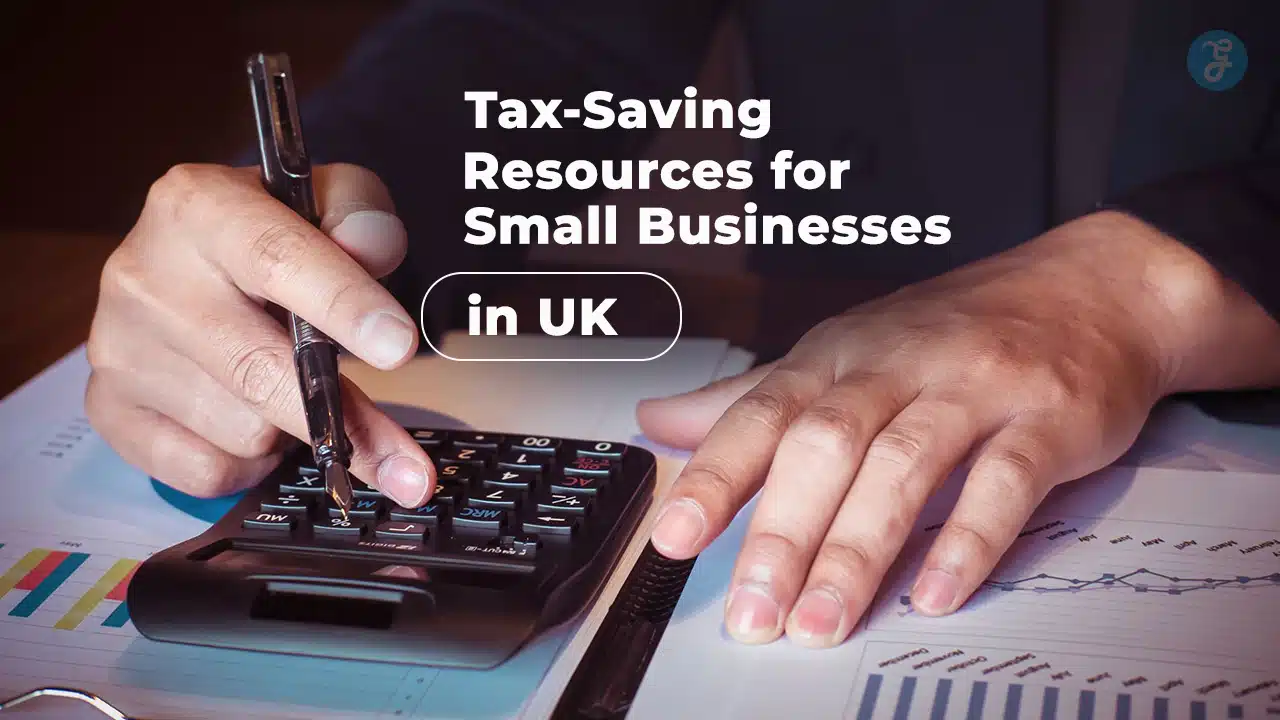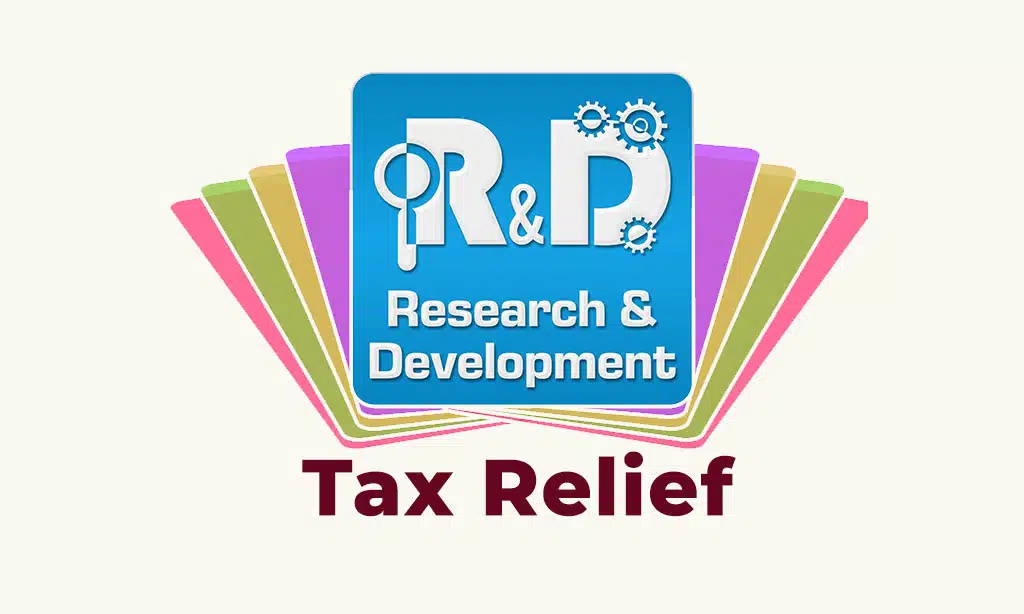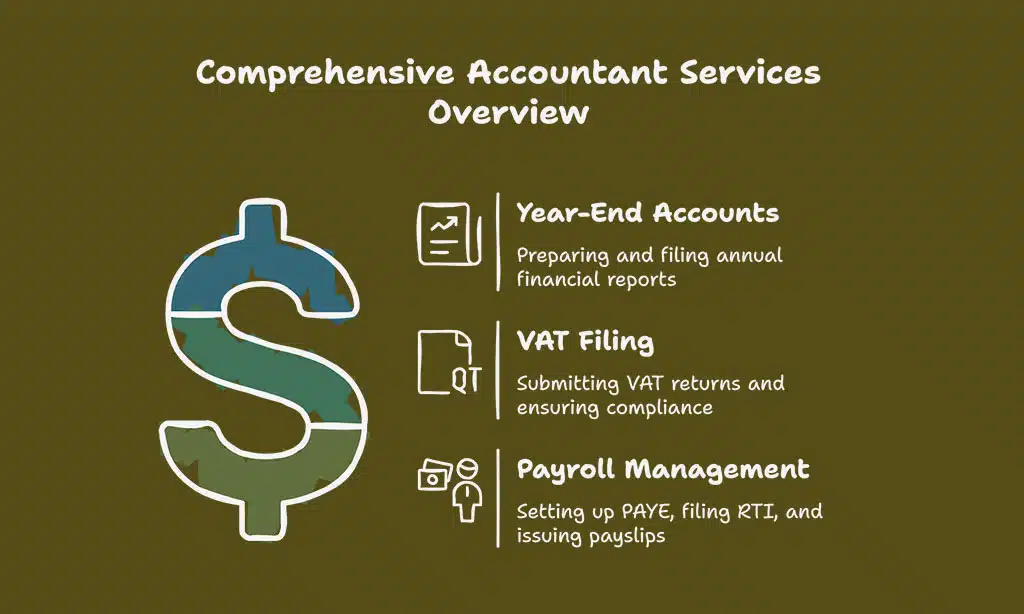Running a small business in the UK comes with many responsibilities, and managing your tax obligations is one of the most crucial. For many entrepreneurs and SME owners, finding effective ways to reduce tax liabilities can significantly improve cash flow and boost overall profitability. Luckily, there are a variety of tax-saving resources available that are specifically designed to support small businesses.
This guide will explore 12 tax-saving resources for small businesses in UK that offer everything from government relief schemes and technology-driven accounting tools to professional advisory services and incentive-based tax credits.
Each resource is accompanied by practical examples, comparison tables, and key action points to help you understand how they work and how to take advantage of them.
12 Tax-Saving Resources for Small Businesses in UK
Before diving into the specific programs and strategies, it’s important to understand that the UK government has made concerted efforts to ease the financial load on small businesses. Whether you’re just launching or already scaling your enterprise, there are targeted initiatives that can make a significant difference in your tax outgoings.
These schemes are not just for large corporations—many are specifically designed with small and medium enterprises [SMEs] in mind.
1. HMRC Tax Relief Programs
HM Revenue & Customs [HMRC] provides a wide range of tax relief programs tailored to support UK small businesses across different sectors. These programs aim to ease financial burdens, encourage investment, and help small business owners reinvest in their growth. Understanding what’s available—and how to apply—can make a substantial difference to your bottom line.
Key Benefits:
- Significantly lowers tax liability
- Encourages strategic reinvestment in business operations
- Accessible through straightforward HMRC portals
Common Tax Relief Programs:
| Relief Program | Description | Eligible Businesses |
| Capital Allowances | Deduct the cost of certain capital assets | All registered businesses |
| Business Rates Relief | Reductions on property taxes for qualifying properties | Businesses in England |
| Seed Enterprise Investment Scheme | Tax incentives for investors in early-stage companies | Startups and new ventures |
Action Tip: Check your eligibility annually, as relief thresholds and criteria may change based on the fiscal budget.
2. R&D Tax Relief [Research & Development]
R&D Tax Relief rewards companies that focus on innovation—even if the project isn’t successful. It’s a powerful incentive for businesses engaged in scientific or technological development, including software, engineering, manufacturing, and health sectors.
Many SMEs overlook this relief, believing it’s only for tech giants. However, even developing a new internal system or improving a manufacturing process qualifies.
Key Details:
- Up to 33p for every £1 spent on qualifying R&D
- Applicable to failed, ongoing, or completed projects
- Claims can be backdated up to two accounting periods
Eligible Expenditures:
| Cost Type | Examples |
| Staff Costs | Salaries, NICs, pensions |
| Software | Tools used in R&D processes |
| Prototypes & Testing | Materials and equipment costs |
Example: A small electronics company spent £60,000 on an in-house product improvement. Through R&D tax credits, they received a £19,800 tax rebate.
3. Annual Investment Allowance [AIA]
The AIA enables businesses to deduct the full value of eligible capital investments from their taxable profit, offering an excellent way to offset significant equipment or machinery costs.
If your business is looking to expand or upgrade its operations, investing in capital assets can result in considerable tax deductions via the AIA.
Key Details:
- Allowance cap: £1 million [subject to annual review]
- Available on plant and machinery, IT systems, and office furniture
- Applies in the year of purchase
Comparison Table:
| Asset Type | Eligible? | Notes |
| Office Equipment | Yes | Desks, chairs, filing cabinets |
| Business Vehicles | Partially | Only vans/commercial vehicles |
| Software Licenses | Yes | If capital in nature |
Tip: Time purchases toward your accounting year-end to maximize claim within the same tax period.
4. Cloud-Based Accounting Software
Digital accounting platforms are essential for modern small businesses, especially in the era of HMRC’s Making Tax Digital [MTD] initiative. These platforms automate many tax functions, help track expenses, and ensure accurate VAT submissions.
By adopting cloud-based accounting software, small businesses can maintain compliance, generate real-time financial reports, and optimize decision-making.
Comparison Table:
| Software | Starting Price | HMRC MTD Compliant | Top Features |
| Xero | £12/month | Yes | Bank feeds, mobile app, invoicing |
| QuickBooks | £10/month | Yes | VAT tracking, payroll, cash flow tools |
| FreeAgent | £9.50/month | Yes | Tax timeline, self-assessment support |
Benefits:
- Save time with automation
- Reduce human error
- Integrate easily with payroll and banking systems
Case Insight: A consultancy firm reduced year-end accounting costs by 25% after switching to Xero.
5. Tax Estimation and Forecasting Tools
Forecasting your future tax obligations enables smarter budgeting and financial planning. These tools estimate VAT, corporation tax, and personal income tax liabilities.
Tax forecasting tools help you plan better for quarterly tax payments and avoid surprises during filing season.
Popular Tools & Features:
| Tool | Features | Best For |
| Float | Cash flow forecasting | Service-based businesses |
| Futrli | Predictive analytics and scenario plans | Growth-stage startups |
| Brixx | Financial modeling & tax predictions | SaaS and tech companies |
Advantages:
- Plan for future tax bills
- Adjust spending based on projections
- Make informed decisions about investment
6. Receipt & Expense Trackers
Mobile expense-tracking apps are essential for maximizing deductions. They help record, categorize, and store receipts in real time.
Staying organized with expense tracking reduces audit risk and helps claim all allowable expenses without missing anything.
Best Apps Overview:
| App | Unique Feature | Integration Level |
| Expensify | Auto-scan receipts | High – Integrates with QuickBooks |
| Dext | Real-time expense categorization | High – Connects with Xero & Sage |
| Zoho Expense | Mileage & trip tracking | Moderate – Full Zoho suite |
Benefits:
- Easy reimbursement workflows
- Saves hours during tax filing
- Reduces manual data entry
7. Tax Advisors for Small Businesses
Specialist tax advisors provide tailored strategies that are often overlooked in DIY tax planning. Their insight ensures compliance and optimization.
They help navigate complex areas like international taxation, VAT planning, inheritance tax implications, and sector-specific reliefs.
How They Help:
- Offer in-depth guidance on tax-saving schemes
- Advise on company structure for tax efficiency
- Assist during HMRC audits or inquiries
Types of Advisors:
| Certification | Regulating Body | Typical Services Offered |
| CTA | CIOT | Tax planning, representation, compliance |
| ACA | ICAEW | Corporate strategy, financial reporting |
Example: A startup in Manchester saved £10,000 in its first year by restructuring based on advice from a CTA-certified advisor.
8. Small Business Accountants
Accountants offer holistic financial management, ensuring tax compliance while helping owners track profitability, costs, and forecasts.
An accountant is vital for accurate bookkeeping, payroll setup, annual filings, and aligning your tax calendar with statutory deadlines.
Accountant Services Comparison:
| Service Area | Accountant Role | Frequency |
| Year-End Accounts | Prepare and file annual financial reports | Yearly |
| VAT Filing | Submit VAT returns and compliance | Quarterly |
| Payroll Management | Set up PAYE, file RTI, issue payslips | Monthly |
Tip: Choose an accountant familiar with your industry to get insights into sector-specific deductions.
9. Financial Planning Services
Financial planners go beyond accounting—they help you build long-term strategies involving business growth, wealth management, and tax efficiency.
They analyze your income, business structure, retirement needs, and exit strategies to minimize long-term tax liabilities.
Services Table:
| Planning Area | What It Includes | Ideal For |
| Retirement Plans | Pension setup, SIPPs | Founders and directors |
| Investment Advice | Tax-efficient asset allocation | Profitable small businesses |
| Exit Strategies | Business sale and CGT planning | Owners looking to exit |
Case Study: A Bristol-based design agency reduced future CGT exposure by £40,000 by planning its business sale two years in advance.
10. Local Business Grants
Many UK regions offer local grants to support digital upgrades, innovation, energy efficiency, and workforce expansion. These can indirectly lower your tax burden by offsetting eligible business costs.
Although these grants aren’t direct tax relief, they reduce taxable profit by lowering net expenses.
Where to Find Them:
| Platform | Type of Support | Coverage Area |
| GOV.UK | General business grants | Nationwide |
| Local LEPs | Regional innovation and startup grants | England & Wales |
| Innovate UK | R&D funding | High-growth sectors |
Tip: Apply early. Many grants have short application windows and competitive review cycles.
11. Employment Allowance
Employment Allowance helps small employers reduce their annual National Insurance bill—freeing up cash for other expenses.
This allowance is especially beneficial for businesses with a small team or new hires.
Key Details:
| Criteria | Requirement |
| Maximum Relief Amount | £5,000/year |
| Eligibility Threshold | NICs under £100,000/year |
| Application | Via payroll software or HMRC |
Example: A 3-employee design firm saved £4,800 annually, reinvesting the money into software upgrades.
12. Capital Gains Tax Reliefs
When selling business assets or shares, CGT can be substantial. Various reliefs exist to mitigate this tax.
Entrepreneurs looking to exit or sell part of their operations can benefit from tax reliefs that reduce CGT by up to 50%.
Reliefs Comparison:
| Relief Type | Benefit | Conditions |
| Business Asset Disposal Relief | 10% CGT rate vs. 20% | Must own business >2 years |
| Holdover Relief | Delay CGT to transferee | For gifting assets or shares |
Tip: Engage an advisor 1-2 years before a sale to fully leverage relief strategies.
Bonus Tips to Maximize Tax Savings
Keep Thorough Financial Records
- Use digital apps for invoice tracking and expense categorization
- Back up records to the cloud
Separate Business and Personal Expenses
- Avoid mixed-use purchases
- Maintain a dedicated business bank account
Reinvest Profits Strategically
- Invest in assets that qualify for AIA
- Dedicate funds to staff training [claimable under certain grants]
Takeaways
Navigating taxes can feel overwhelming for small business owners, especially with the frequent changes in UK tax legislation and the demands of day-to-day operations. However, with the right approach, tools, and support, reducing your tax liability doesn’t have to be complicated or risky. Small businesses today have access to a broad range of reliefs, digital tools, grants, and professional services that can dramatically ease the tax burden.
These 12 tax-saving resources for small businesses in UK are not just helpful—they’re essential for any entrepreneur looking to maximize profit margins and maintain long-term sustainability.
From leveraging powerful government-backed incentives and modern cloud-based software to hiring financial advisors and tapping into regional grant funding, each resource serves a specific purpose in strengthening your financial strategy.
Take the time to explore, implement, and optimize these opportunities to ensure your business operates as tax-efficiently as possible while remaining fully compliant with HMRC regulations.
By proactively applying for grants, using digital tools, hiring the right experts, and planning ahead, small business owners can save thousands of pounds each year while staying compliant. Don’t leave money on the table—empower your business with smart tax planning and make the most of what’s available to you.






































